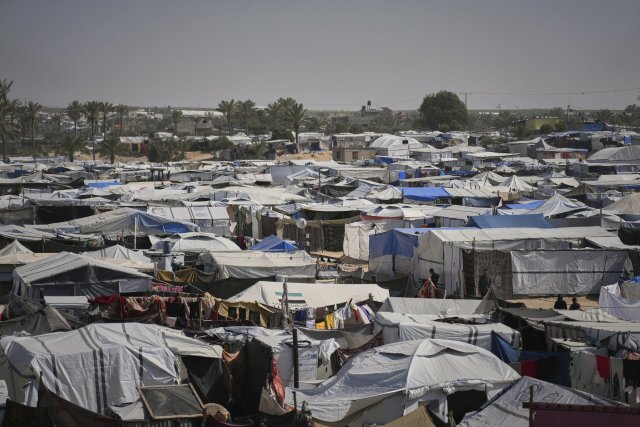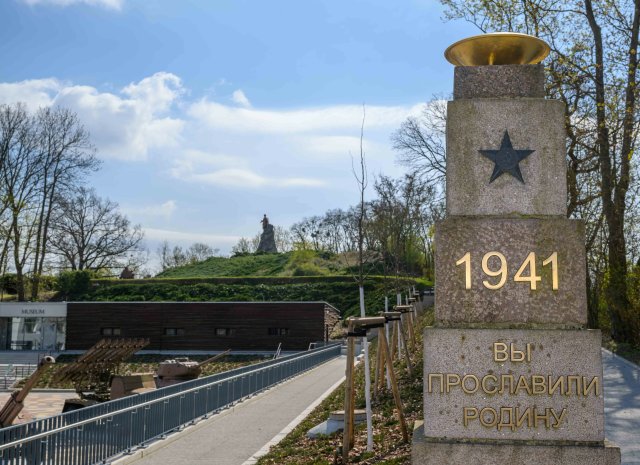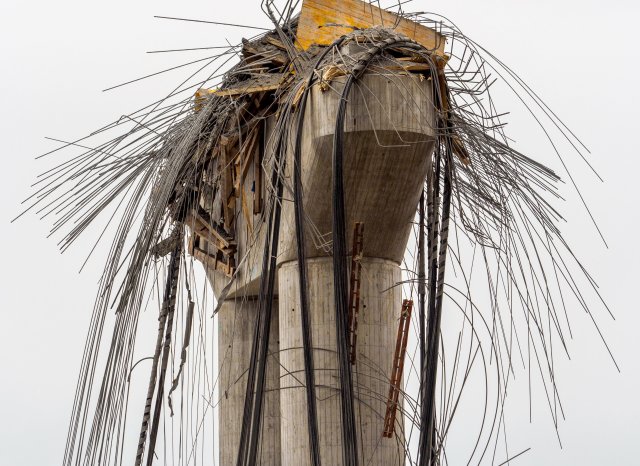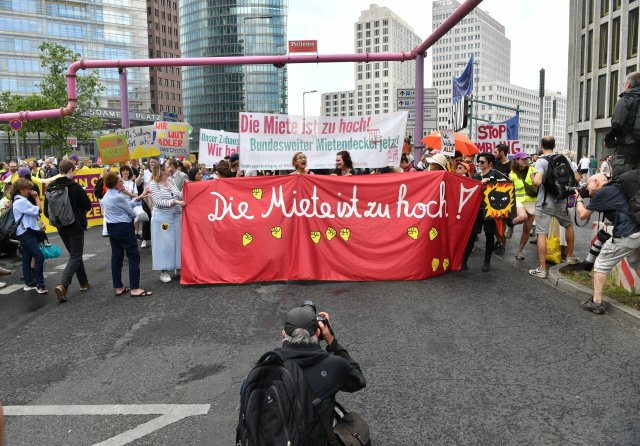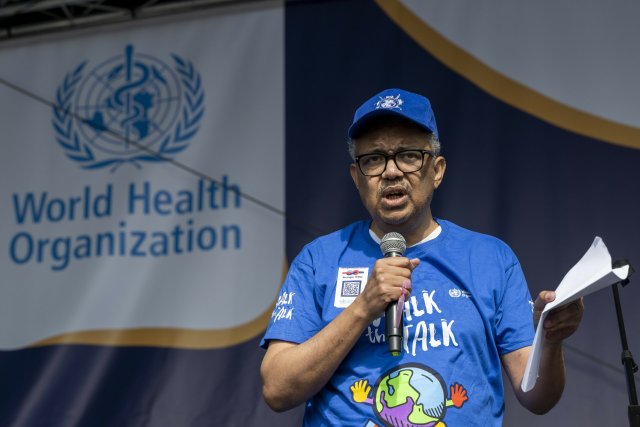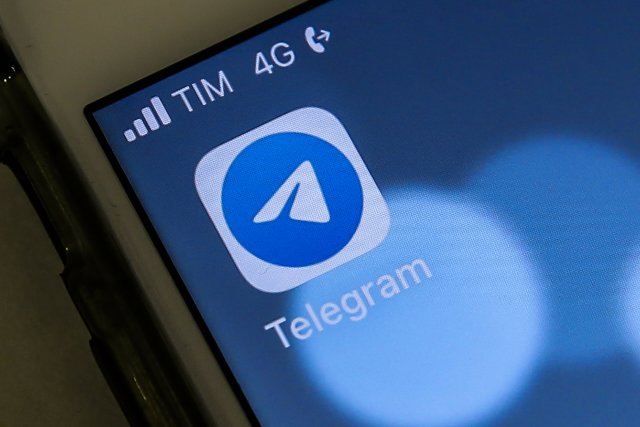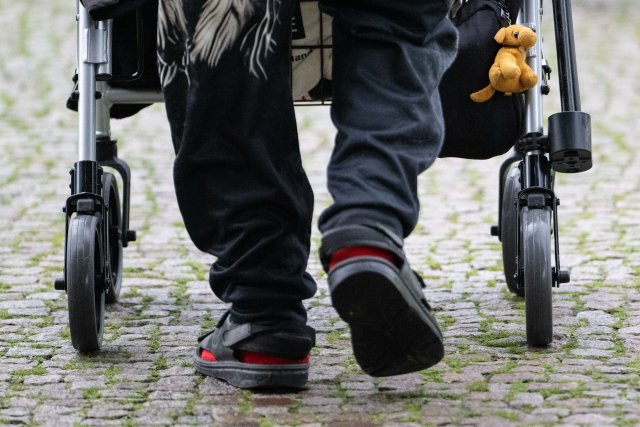- Kommentare
- Irish
Dangerous Language Bans at Pro-Palestine Camp in Berlin
Gaeilge is an official EU language. Yet when Irish activists tried to speak it at a protest camp in Berlin, they were threatened with arrest
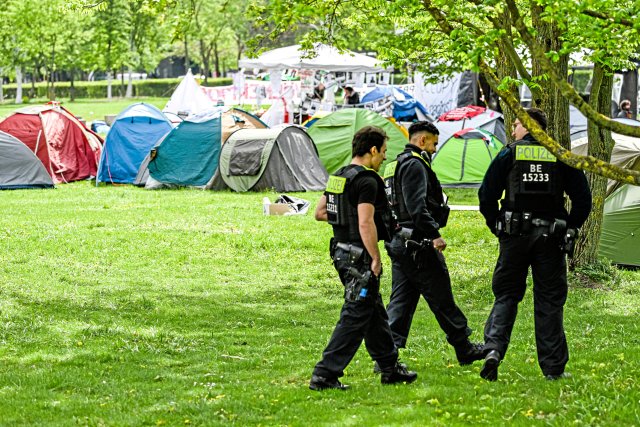
Berlin police have recently banned the use of the Irish language at a pro-Palestine protest camp. Gaeilge is the national language of the Republic of Ireland, and since 2007, it has been an official language of the EU as well. Last Friday, a new group called the Irish Bloc Berlin invited people to a cirocal comhrá, a conversation circle where people can practice a language that is notoriously unpronounceable for English speakers.
The cops informed them that flags, banners, speeches, chants, and songs in Irish were all prohibited. At the ongoing protest camp in front of the Reichstag, the police only allow German and English to be spoken – Arabic is permitted for a short window at 6pm. As the police confirmed to the Irish Independent, they ban languages they don't understand, so they can check if anything illegal is being said.
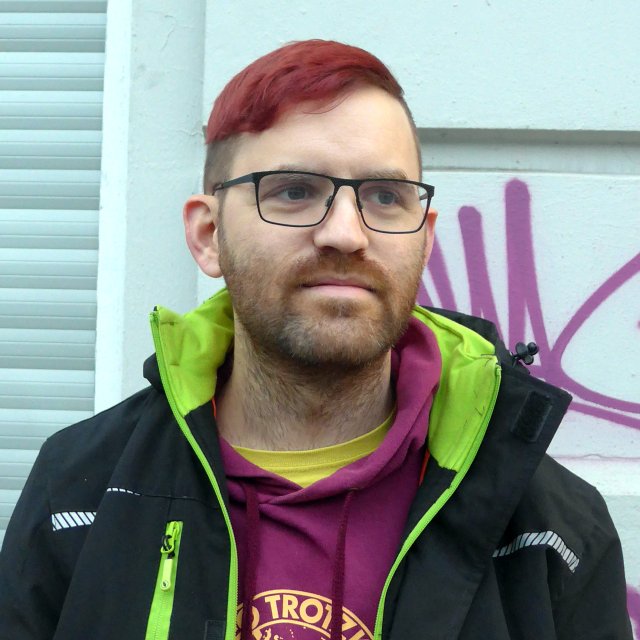
Red Flag is a column on Berlin politics by Nathaniel Flakin. It appeared in Exberliner magazine from 2020 to 2023 and found a new home at the Berlin newspaper nd – as their first content in English. If you like a regular dose of very local communist content, please share. Nathaniel is also the author of the anticapitalist guide book Revolutionary Berlin.
Diese Kolumne auf Deutsch lesen.
Cops split the 40 or so Irish immigrants into smaller groups. Even after they been led away from the demonstration, officers continued to prohibit the use of Gaeilge. When the group left and sought shelter in a nearby museum, police followed them inside. They were not accused of any crime – besides speaking Irish without a permit.
This ban is disturbing for a number of reasons – and I have never encountered such a language ban before. Is Hebrew allowed at pro-Israel demonstrations? Shockingly, at the pro-Palestinian camp, even Hebrew is verboten.
Justice Minister Marco Buschmann said he looks forward to »the day when people can speak Hebrew on the street without fear.« How does he think Israelis feel when German officers in dark uniforms tell them they will be arrested for speaking their language? The police have violently attacked a number of Jews at the protest camp, knocking off kippahs with punches.
In a statement, the Irish Bloc wrote that »we as Irish people are all too familiar with having our language oppressed.« In the 19th century, Gaeilge was banned in schools by British colonial authorities, who ruled the island for 800 years. Today, about 40 percent of people in Ireland some Irish, but only 100.000 or so use it on a daily basis.
The Irish language became a symbol of the struggle for a Republic. Political prisoners learned and spoke Irish in British jails. Bobby Sands coined the battle cry »Tiocfaidh ár lá« (pronounced »chucky arlaw«), meaning »our day will come«.
That's why the ban on Irish, more than any other language, is ruffling feathers.
The Irish press is all over the story. Paul Murphy, a Teachta Dála or member of the Irish parliament, called this »disgraceful«: »This highlights the extreme lengths the German establishment is going to in their attempt to silence the Palestine-solidarity movement.« As Murphy explained to »nd«, »Irish people stand in solidarity with the Palestinians because of our own history of colonial oppression.«
Ireland served as an imperial laboratory where strategies of partition were first tested before being applied across the globe. Today, many former colonies are dealing with the bloody legacy of divide-and-rule policies. Due to this parallel history, Ireland has long been the most pro-Palestinian nation in Europe.
I also find this ban outrageous. I am one of 36 million Irish Americans – compared to just seven million Irish people on the island. I have never been to Ireland, and I have no idea where my ancestors were from, and even if you told me, I wouldn't be able to find it on a map. Yet I sing all the old Irish rebel songs to my kid, and I can't believe I can't sing them in public.
Germany has been coming up with ever more absurd forms of repression against Palestine solidarity, such as banning Hebrew and disinvite Jewish professors. Yet this Irish language ban seems like the most ridiculous step yet.
Das »nd« bleibt. Dank Ihnen.
Die nd.Genossenschaft gehört unseren Leser*innen und Autor*innen. Mit der Genossenschaft garantieren wir die Unabhängigkeit unserer Redaktion und versuchen, allen unsere Texte zugänglich zu machen – auch wenn sie kein Geld haben, unsere Arbeit mitzufinanzieren.
Wir haben aus Überzeugung keine harte Paywall auf der Website. Das heißt aber auch, dass wir alle, die einen Beitrag leisten können, immer wieder darum bitten müssen, unseren Journalismus von links mitzufinanzieren. Das kostet Nerven, und zwar nicht nur unseren Leser*innen, auch unseren Autor*innen wird das ab und zu zu viel.
Dennoch: Nur zusammen können wir linke Standpunkte verteidigen!
Mit Ihrer Unterstützung können wir weiterhin:
→ Unabhängige und kritische Berichterstattung bieten.
→ Themen abdecken, die anderswo übersehen werden.
→ Eine Plattform für vielfältige und marginalisierte Stimmen schaffen.
→ Gegen Falschinformationen und Hassrede anschreiben.
→ Gesellschaftliche Debatten von links begleiten und vertiefen.
Seien Sie ein Teil der solidarischen Finanzierung und unterstützen Sie das »nd« mit einem Beitrag Ihrer Wahl. Gemeinsam können wir eine Medienlandschaft schaffen, die unabhängig, kritisch und zugänglich für alle ist.
